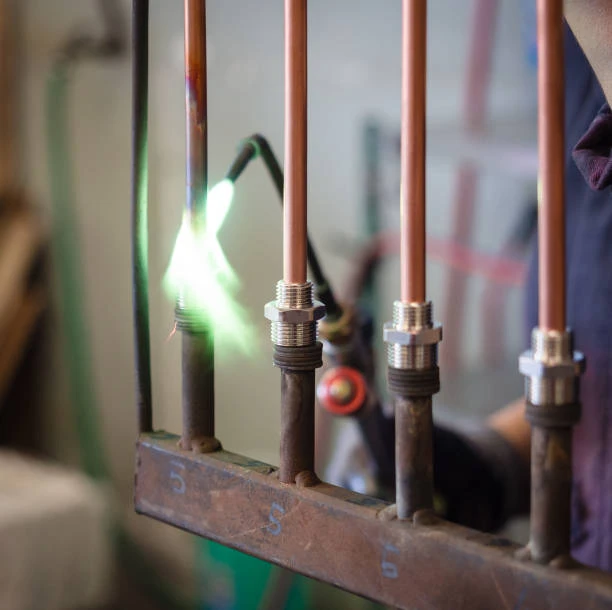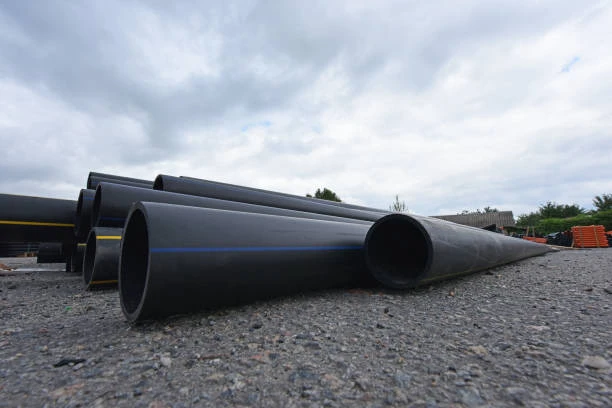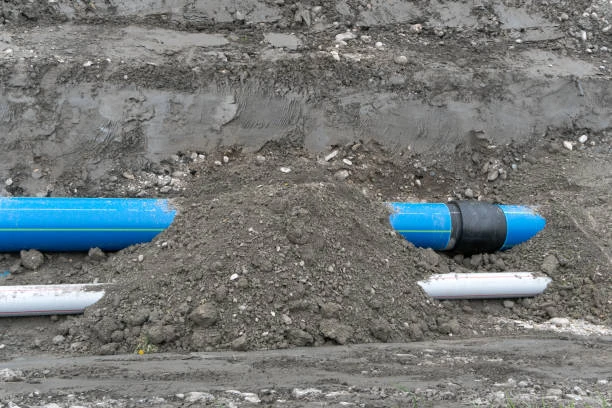In today’s construction and infrastructure world, HDPE pipe has become a hot topic—and for good reason. It’s strong, flexible, long-lasting, and easy to work with. Now, more suppliers from around the world are stepping into the game, and Iranian traders have started catching attention. One particular Iranian trader now offers a reliable and cost-effective supply of HDPE pipe, and people are beginning to take notice.
Let’s break down what makes this material so popular and why buying from an Iranian trader might actually give you a solid edge in your business.

Why Do So Many People Choose HDPE Pipe?
HDPE stands for High Density Polyethylene. It’s a type of plastic pipe that doesn’t crack, rust, or corrode easily. People use HDPE pipe for water lines, gas distribution, sewage systems, irrigation setups, and even industrial piping. It’s one of those “install it and forget it” products.
The real benefit comes from its strength combined with flexibility. This pipe bends with the ground, which makes it great in places where the soil moves or freezes. It also handles pressure well, so it works great for both high- and low-pressure systems.
Contractors, engineers, and city planners love HDPE pipe because they don’t need to worry about leaks, breaks, or rust over time. Plus, installation goes quicker since the pipe is light and easy to fuse together.
What’s So Special About an Iranian Trader’s Offer?
Iran holds a strong position in the petrochemical market, and HDPE is one of its standout products. Iranian manufacturers produce high-quality HDPE granules, which gives traders easy access to the raw materials. As a result, Iranian HDPE pipe tends to come at competitive prices—without compromising on quality.
The trader in question sources directly from certified factories and ensures every batch meets international standards like ISO 4427, EN 12201, and ASTM. That means you can get pipes suitable for export projects or local infrastructure jobs.
Also, this trader doesn’t just sell pipes and disappear. They often offer support with documents, logistics, and customs clearance. For new buyers, that’s a big deal—it makes importing a lot smoother and less stressful.
Key Applications of HDPE Pipe
Here are some of the most common uses for HDPE pipe. Chances are, if you’re in any of these industries, you’ve already considered switching to HDPE or increasing your stock.
1. Water Supply
Cities and rural areas rely on HDPE pipes for clean, safe water delivery. The smooth inner surface helps prevent blockages and buildup, which keeps the flow steady and maintenance low.
2. Irrigation Systems
Farmers install HDPE pipe to move water around their fields. The pipe holds up under the sun and stays strong during seasonal changes.
3. Gas Lines
Gas companies prefer HDPE because it seals tightly and prevents leaks. It also doesn’t corrode, which gives it a longer lifespan compared to metal.
4. Sewage and Drainage
Sewage lines need pipes that resist chemicals and pressure. HDPE works well in these tough conditions, and its flexibility helps it survive soil movement and heavy loads.
5. Industrial Piping
Factories use HDPE pipe for moving chemicals, wastewater, or cooling water. It handles all kinds of substances without reacting or weakening.
Price and Quality: A Strong Combo
Many traders sell HDPE pipe, but not all of them balance cost and quality well. Iranian traders—especially the one we’re talking about—manage to do both. Because they work close to the manufacturing source, they can offer factory-direct pricing.
They also know the international market and understand what buyers in countries like India, Turkey, Iraq, Kenya, and even Europe expect. You won’t just get a random shipment—you’ll get pipes packed properly, sized right, and tested before leaving the warehouse.
HDPE Pipe Sizes and Types Available
The Iranian trader typically supplies HDPE pipes from 20mm all the way up to 1200mm diameter. Pressure ratings often range from PN6 to PN20, depending on your project. They also offer pipes for butt fusion, electrofusion, or socket welding.
Need custom lengths or coil-packed pipe? No problem. This trader can sort that out and ship it with all the proper labels and test certificates.
Easy Shipping and Export Support
One of the reasons people hesitate to buy from international traders is the shipping headache. But this Iranian trader takes that worry off your plate. They’ve already shipped to dozens of countries and know how to handle the paperwork.
They work with reliable freight forwarders and often arrange transport through Bandar Abbas—one of Iran’s main export ports. Whether you need full containers or mixed loads, they can make it happen.
Final Thoughts
HDPE pipe keeps gaining ground in construction, farming, water systems, and more. It lasts long, saves time during installation, and resists damage like a champ. Now, with Iranian traders offering top-tier quality at fair prices, buyers have more options than ever.
If you’re looking for a reliable HDPE pipe supplier, checking out what an Iranian trader can offer might just surprise you—in a good way.
FAQ – Quick Answers About HDPE Pipe
Q1: Is Iranian HDPE pipe good quality?
A: Yes, especially when sourced from certified manufacturers. Many pipes meet ISO, ASTM, and EN standards, so you can count on them for international use.
Q2: Can I use HDPE pipe for drinking water?
A: Definitely. Just make sure the pipe is food-grade and labeled safe for potable water. Most HDPE pipes sold by serious traders meet this requirement.
Q3: What’s the biggest size I can get?
A: This trader offers HDPE pipe up to 1200mm diameter. That covers almost any water, gas, or industrial application.
Q4: How do I connect HDPE pipe?
A: You can use butt fusion, electrofusion, or compression fittings. The most common method is butt fusion—it creates a strong, leak-free joint.
Q5: How long does shipping take from Iran?
A: It depends on your location. To nearby countries, it can take a few days. For Europe or Africa, expect 2–4 weeks on average.


















